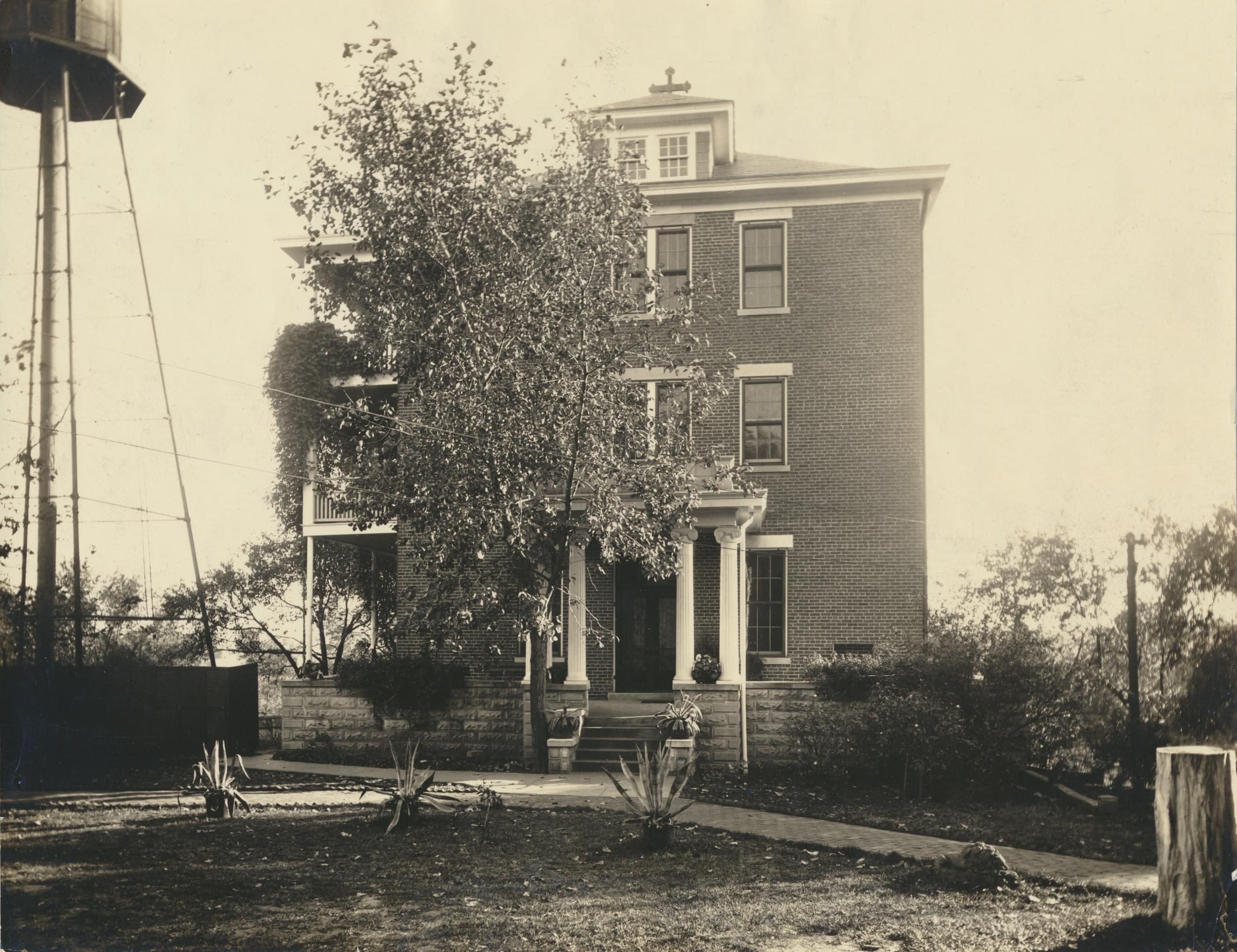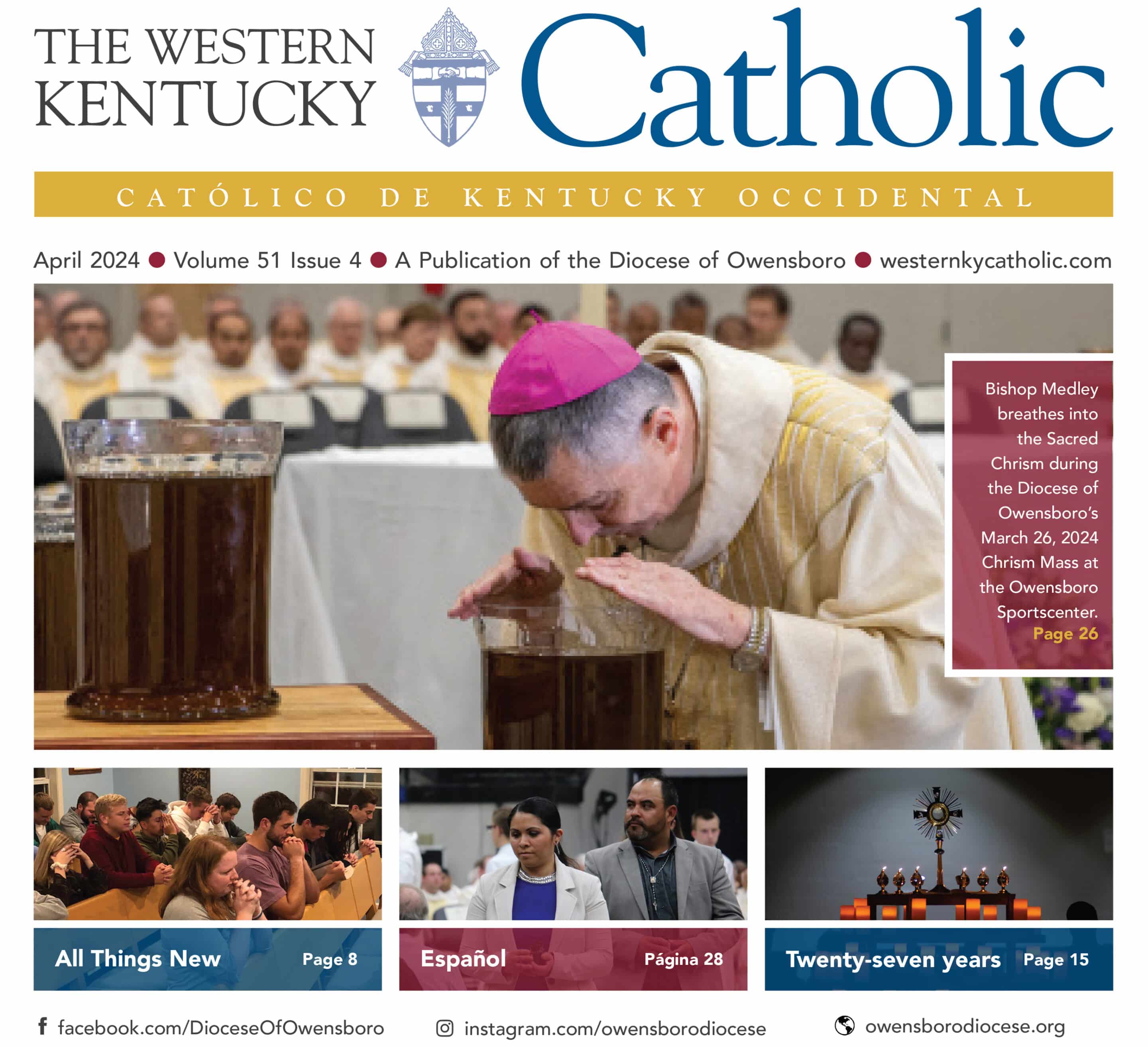
The exterior of St. Angela Hall, erected in 1913, shortly after the Ursuline Sisters of Mount Saint Joseph gained autonomy from the Ursuline Sisters of Louisville. COURTESY OF ARCHIVES
The early years of autonomy for the Ursuline Sisters of Mount Saint Joseph
BY EDWARD WILSON, ARCHIVES
Before becoming an autonomous community, the Ursuline Sisters of Mount Saint Joseph were a part of the Ursuline Sisters of Louisville. Less than 40 short years after arriving to Mount Saint Joseph, the MSJ Ursulines made the courageous move to break away from the larger Ursuline community of Louisville and become a separate community. Mount Saint Joseph was relatively young and becoming autonomous would cause many hardships. However, the MSJ Ursulines’ pure faith in God and Kentucky spirit pushed them through the hard days that followed the separation from Louisville in 1912.
Anyone who has ever been to the Mount for a school field trip, religious retreat, or summer picnic may have a hard time imagining that life at the “Maple Mount” was once a self-sustaining struggle. However, in its early days of autonomy, it was a poor religious community in the middle of the wilderness. Archived interviews of some of the Ursuline Sisters who lived through these early days illuminate both the hardship and beauty of the struggle.
Nearly every bit of work was done by the sisters as the community had little money to hire labor. Sr. Joseph Marie Williams, OSU, who entered the novitiate in 1914, recalled getting up at 4 a.m. to start handwashing the community’s laundry before going to church. Sr. Mary Jean Cotter, OSU, recalls working long, arduous hours in the fields of the farm, concluding, “We’d work all day and go to bed pretty early.” Sr. Pauline Chamberlain, OSU, who entered in 1915, relayed that with help limited, often they would be pulled from their studies to do work, “scrubbing here, scrubbing there, everyplace.” All of this was done in full habits.
With funds limited, they ate whatever they had. For breakfast the sisters had a meal of homemade bread and gravy, or a hot drink, like coffee. Sr. Mary Jean Cotter recalls that “beans, corn and tomatoes” were had for dinner. These were grown on the Mount’s farm. Numerous sisters recall that a favorite meal was a simple one, toast and molasses. Being too poor for preserves, molasses was a substitute; still, this meal was loved. Meat was not plentiful and dairy such as butter or milk was only had if you were sick as it was too expensive and precious to have otherwise.
Funds were very hard to come by. Being from a poor farming community, donations were nearly non-existent. As Sr. Marie Joseph Peterson, OSU, put it, they did not get donations, “Not in those days, not big enough to see.” They largely existed on meager salaries from teaching and nearly anything else possible. Sr. Lucille Blincoe, OSU, recalls that herself and three to five other sisters sold their hair to raise money for the chapel fund.
Though the word “poor” is used numerous times throughout the interviews, the word “happy” is used perhaps just as often. Their financial status had no detrimental effects on their happiness. It actually seems to have made them happier. Sr. Mary Joseph, OSU, recalls that it was knowing what it was to be hungry that made eating their humble meals such a joy. Much can be gleaned from the words of these early sisters on happiness in God’s will. Sr. Pauline’s words can sum up what many of the interviews confirm, “We were happy and went after it in a happy way.”
Edward Wilson is the director of the Diocese of Owensboro’s Archives and the Archives of the Ursuline Sisters of Mount Saint Joseph. Comments and questions may be sent to [email protected].
Originally printed in the September 2022 issue of The Western Kentucky Catholic.

